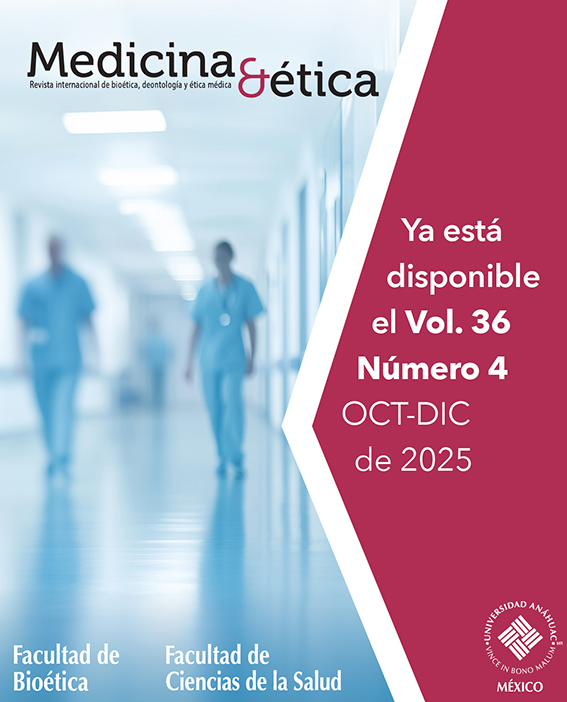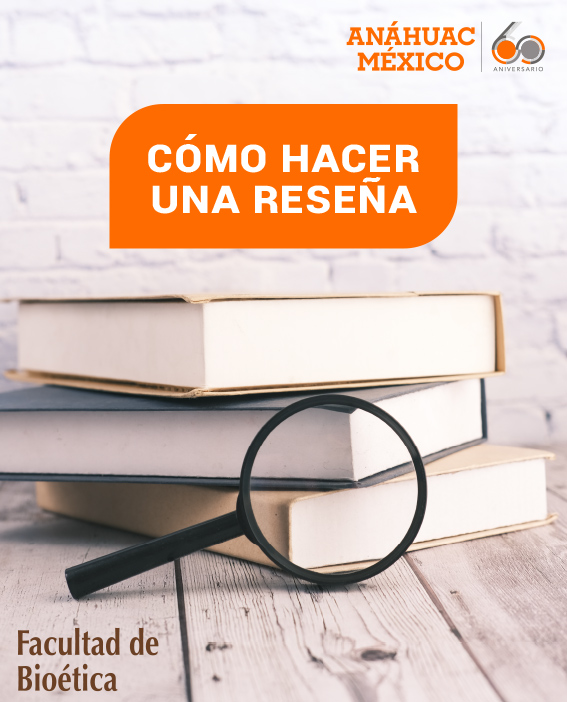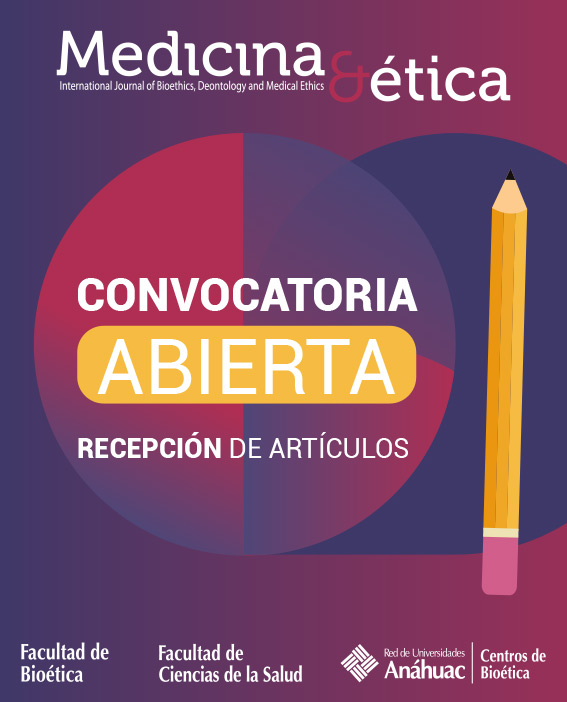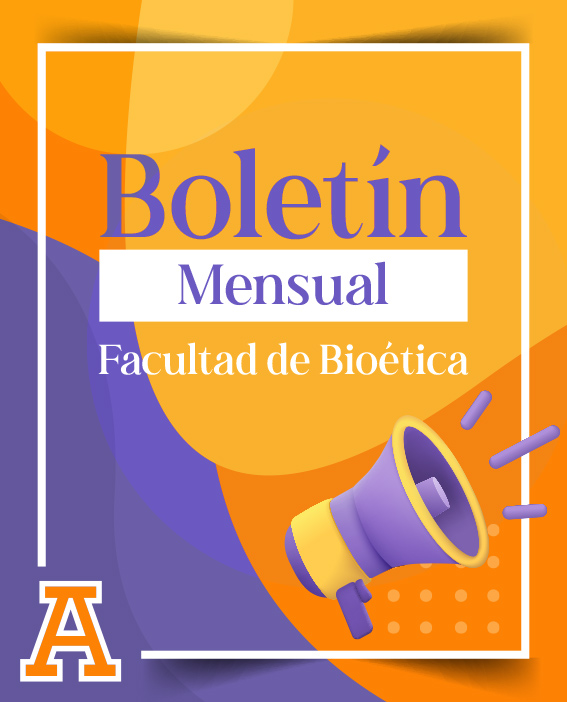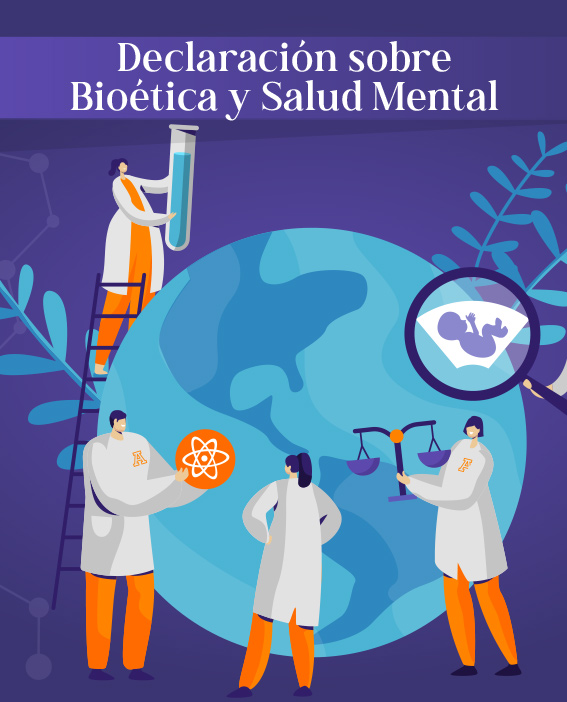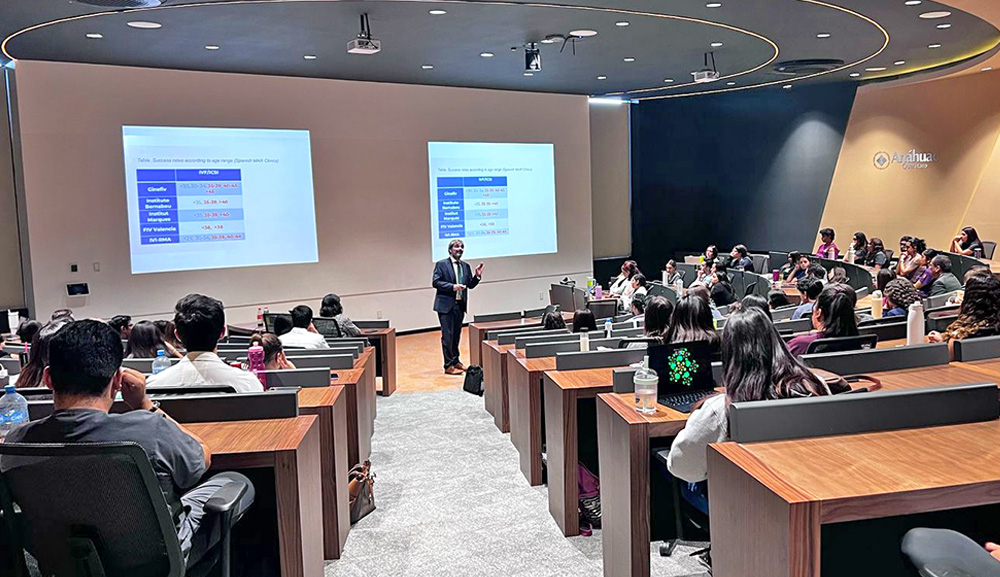
During a lecture series organized by the Bioethics Center at Anáhuac University of Querétaro, we fostered academic dialogue on ethics in medical practice.
In a significant effort to strengthen academic dialogue and ethical training in the field of health, the Bioethics Center at Anáhuac University Querétaro held a series of conferences in collaboration with the School of Bioethics at Anáhuac University Mexico. This initiative reaffirms the presence of bioethical thought within the Anáhuac University network and responds to the growing need to integrate ethical reflection into medical practice, in a context where scientific advances and social complexities demand a critical, responsible approach centered on human dignity.
The event was attended by distinguished academics, including Ricardo López, director of the Division of Health Sciences; Dr. Alfredo Manzano García, MD, PhD, director of the Academic Program in Medicine; and Dr. Nora Angélica Castro Montes, coordinator of the Anáhuac Querétaro Bioethics Center. Representing Anáhuac University Mexico, Dr. José Alberto Castilla Barajas, director of the School of Bioethics, participated. He strengthened interinstitutional collaboration and fostered collaborative work around the fundamental values of contemporary bioethics.
The event also featured Dr. Francisco Güell Pelayo as a guest speaker, enriching the program with his expertise in bioethics and assisted human reproduction.
The conferences addressed key topics such as ethical training in health sciences, bioethical challenges in healthcare, the importance of responsible research, and the need to develop a critical awareness of emerging technologies.
These reflections allowed attendees—students, teachers, and professionals in the field—to share experiences, knowledge, and perspectives that enrich the understanding of bioethics as a transversal and deeply human discipline.
Impact and projection of the Bioethics Center in Querétaro
This academic meeting highlighted the work of the Bioethics Center at Anáhuac University of Querétaro, promoting a comprehensive ethical vision and strengthening the culture of respect for human dignity in the academic, clinical, and social spheres.
Dr. Nora Castro emphasized that this series of conferences represents a key opportunity to consolidate the center's role as a regional benchmark in promoting bioethics, establishing it as a meeting point for ethical reflection and action in the university context.
Commitment to humanistic training and applied bioethics
The initiative reaffirms the Anáhuac university network's commitment to humanistic, interdisciplinary, and critical education, positioning bioethics as a central pillar of higher education.
Furthermore, these types of collaborations foster the growth of a committed academic community, where knowledge is built not only from a technical perspective, but also from an ethical perspective that guides scientific development in the service of the common good.
The synergy between the different campuses of the Anáhuac Network allows for the creation of spaces for dialogue and reflection that contribute to the development of applied bioethics that is relevant and has a social impact. This collaboration reinforces the role of bioethics as a key tool for addressing the ethical challenges of the contemporary world from a humanistic and responsible perspective, paving the way for future joint initiatives that continue to consolidate this fundamental field in education and professional practice.
More information:
MPSS Estefanía Alvarez
Facultad de Bioética
bioética@anahuac.mx

